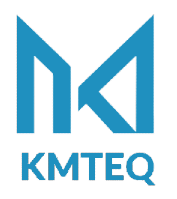One of the most prevalent fascinating technologies in the business sector today is robotic process automation or RPA. RPA can be helpful in a variety of specialized business contexts. Two of the most cutting-edge applications of these tools today have to do with the accounting and financial procedures that keep businesses humming. The excessive reliance on spreadsheets is concerning given the dangers and related issues, such as shifting accounting rules, time constraints, input errors, and spreadsheet cell linkage. RPA in accounting and finance has the potential to change how financial analysts approach accounting significantly.
The various RPA use cases in accounting and finance

New RPA use cases in accounting and finance sectors have emerged during the past few years because of new tools and growing business awareness of the advantages of automation. Let’s take a look at some of these uses.
- Revenue Audits:
Many of the comparable tasks needed for ordinary revenue audits can be handled by robots, saving you time and allowing you to focus on providing thorough reports.
- Risk assessment:
In order to decrease the burden that firms place on audit specialists, robots can also help with continuing rules-based risk assessment.
- Basic accounts reconciliation:
Many of these activities’ fundamental components can be easily handled by RPA robots; only times that human input is needed are when the data does not match up as predicted.
- Purchase order processing:
A software robot with intelligent data capture tools can be programmed to scan POs for important data, enter them into the proper system, and create an approval request.
- Advanced reconciliations:
Reconciliation work might be compared to hours spent looking at Excel. Robots can take over all the repetitious activities you must complete with each input, resulting in more effective audit results.
- Improved financial reporting:
With RPA in accounting and finance, employees will have more time to produce the deep data insights required for wise decision-making as more of the routine financial activities in the office are handled by robots.
What can be automated with RPA?
With RPA in accounting and Finance, numerous processes can be automated:

Account payable:
RPA bots can automate the majority of the accounting, invoice processing, and data extraction procedures in order to create an effective account payable process.

Account receivable:
By streamlining invoice delivery, updating the status in real-time, and notifying the customer quickly without requiring user interaction, the account receivable process can be automated using the RPA chatbot.

Account Reconciliation:
RPA eliminates the risk associated with the old paper-based world, manually verifying spreadsheet data, and producing post-check record modifications.

Data entry automation:
Automated financial processes validate and input data in real-time and efficiently record, transfer, and exchange transaction data. Using RPA bots to enter data significantly reduces financial workload.

Financial closure:
RPA bots may efficiently and swiftly Track progress, deadline, approval, and any errors when importing a spreadsheet from several resources into a central legacy system and running an automated checklist to find and highlight account issues.
Follow us on LinkedIn for more such updates!

